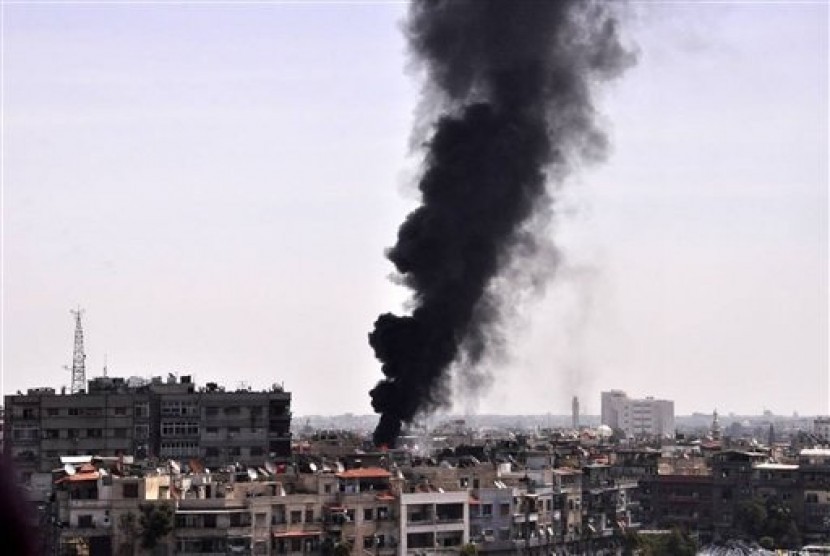REPUBLIKA.CO.ID, BEIRUT - Iran delivered 30,000 tons of food supplies to Syria on Tuesday to help the government deal with shortages due to the civil war, state media said. The aid is part of Iran's broader support for President Bashar Assad as he prepares to run for a third presidential term while his troops battle rebels seeking his overthrow.
Iran has been Assad's major backer throughout the 3-year-old conflict, lending Damascus military support through its proxy Hezbollah group and advising the government on strategy to fight the opposition. Tehran has also been pumping funds into Syria to save the country's battered economy from collapsing.
Last May, Iran extended a 3.6 billion USD credit line to Syria, enabling Assad's government to buy oil products and help shore up the diving value of the Syrian pound.
As the announcement came that the massive shipment arrived at a Mediterranean port, state TV also reported that government forces had made further advances against rebels near the capital, Damascus.
Syria's economy has been hit hard by the conflict, with two of its main pillars— oil exports and tourism — all but collapsed. Before the conflict, oil exports, mostly to Europe, generated up to 8 million USD per day. In 2010, the year before the conflict begun, Syria earned 8 billion USD from tourism.
US and European Union bans on oil imports aimed at punishing Assad's government for its brutal crackdown on dissent are estimated to cost Syria about 400 million USD a month. Before the conflict started in March 2011, Syria produced most of the food needed to feed its 23 million inhabitants and even exported wheat. Over the past year, the country has experienced massive shortages because the fighting has been concentrated in opposition-held, rural areas around Syria's major cities, including the capital, and along the border with Lebanon, where most of the agricultural land is located.


